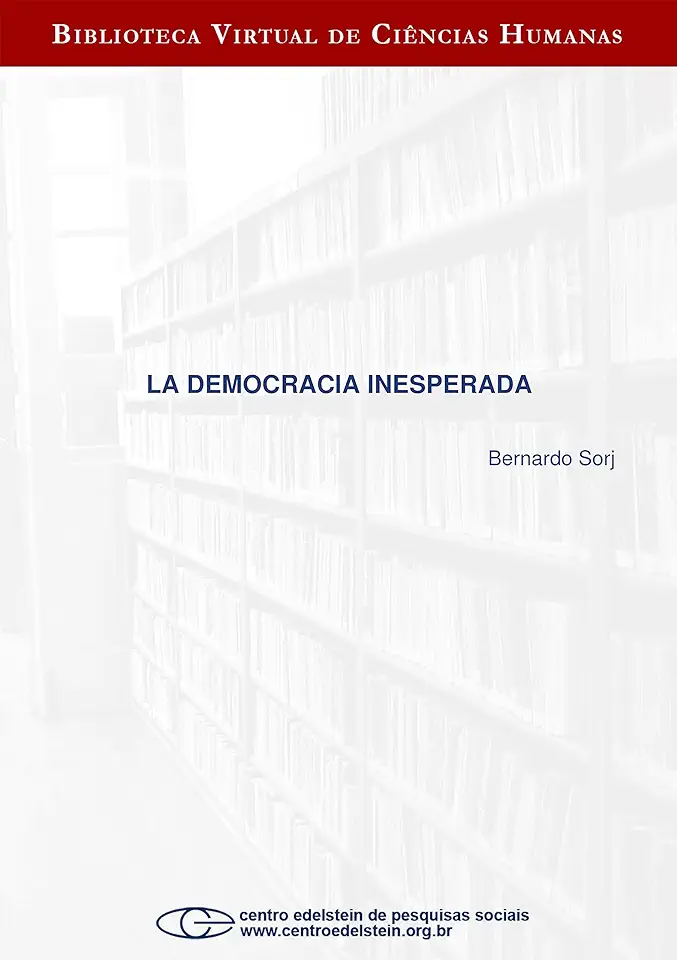
The Unexpected Democracy - Bernardo Sorj
The Unexpected Democracy: A Review
In his book "The Unexpected Democracy", Bernardo Sorj offers a unique and thought-provoking perspective on the rise of democracy in the modern world. Sorj argues that democracy is not simply a product of economic development or cultural factors, but rather a complex interplay of historical, social, and political forces.
A New Perspective on Democracy
Sorj begins by challenging the conventional wisdom that democracy is a natural outgrowth of economic development. He points out that many wealthy countries have not adopted democracy, while some very poor countries have. Similarly, he argues that there is no necessary connection between democracy and cultural factors such as religion or ethnicity.
Instead, Sorj argues that democracy is more likely to emerge in countries that have a strong civil society, a free press, and a tradition of political participation. He also emphasizes the importance of international factors, such as the spread of democratic ideas and the pressure from other democratic countries.
The Challenges of Democracy
Sorj acknowledges that democracy is not a perfect system. He points to the challenges of corruption, inequality, and political gridlock. However, he argues that democracy is still the best form of government because it allows for the peaceful resolution of conflict and the protection of individual rights.
The Future of Democracy
Sorj concludes by arguing that democracy is facing a number of challenges in the 21st century, including the rise of populism, the decline of trust in government, and the spread of fake news. However, he remains optimistic about the future of democracy. He believes that democracy is resilient and that it will continue to adapt and evolve to meet the challenges of the future.
Why You Should Read This Book
"The Unexpected Democracy" is a must-read for anyone interested in democracy. Sorj offers a fresh and insightful perspective on the rise of democracy and the challenges it faces today. This book is essential reading for anyone who wants to understand the past, present, and future of democracy.
Key Concepts
- Democracy is not simply a product of economic development or cultural factors.
- Democracy is more likely to emerge in countries that have a strong civil society, a free press, and a tradition of political participation.
- International factors, such as the spread of democratic ideas and the pressure from other democratic countries, also play an important role in the rise of democracy.
- Democracy is not a perfect system, but it is still the best form of government because it allows for the peaceful resolution of conflict and the protection of individual rights.
- Democracy is facing a number of challenges in the 21st century, but it remains resilient and will continue to adapt and evolve to meet the challenges of the future.